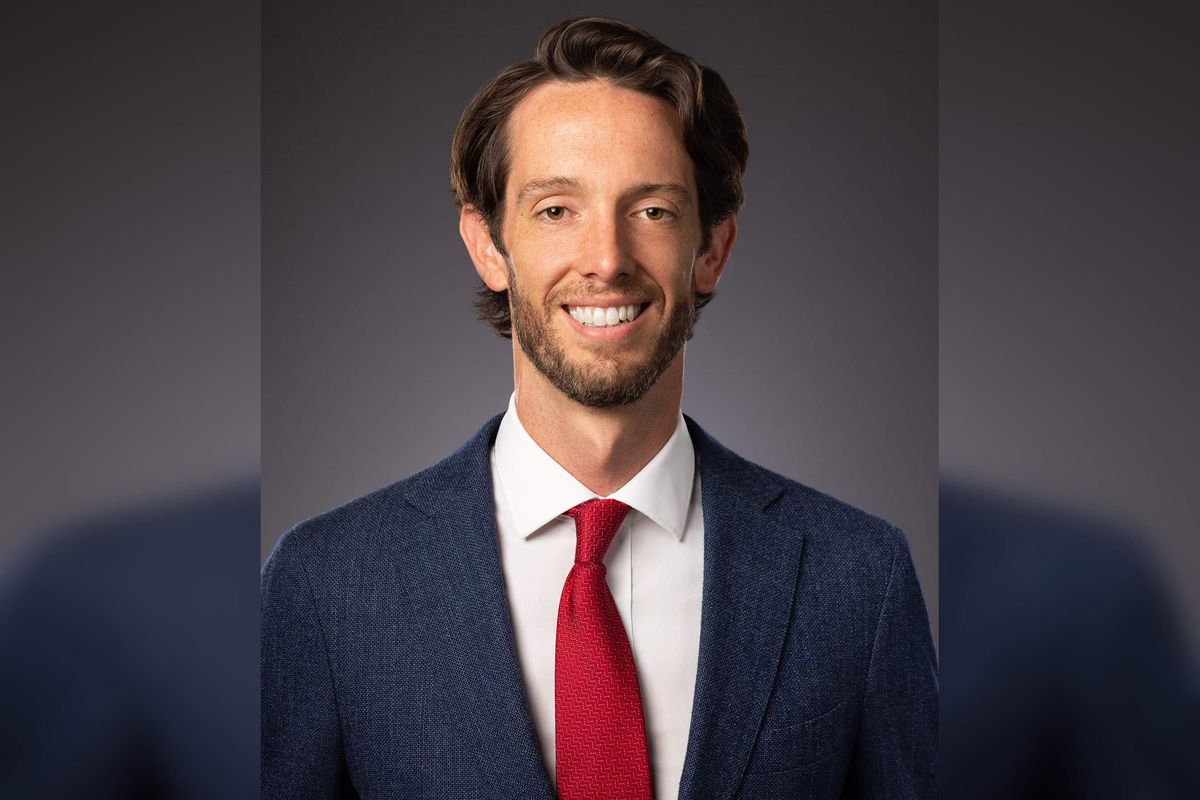Editor's note: Every week, I introduce you to a handful of Houston innovators to know recently making headlines with news of innovative technology, investment activity, and more. This week's batch includes a biotech leader, a Nobel laureate, and EV innovator.
Chris George, United States co-lead at Octopus Electric Vehicles

Chris George, United States co-lead at Octopus Electric Vehicles, joins the Houston Innovators Podcast. Photo courtesy of Octopus
Switching from a gas-powered car to an electric one can be a big change, but a Houston-based company has made things a lot easier for its customers.
Octopus Electric Vehicles US, a spinout of United Kingdom-based retail energy provider Octopus Energy, matches its users with their perfect EV lease and sets them up with smart electricity technology for at-home charging.
"We do a couple of really unique things that are not only first of its kind but really innovative," Octopus EV's US Co-Lead Chris George says on the Houston Innovators Podcast, pointing out specifically Octopus Energy's Intelligent Octopus, a smart feature for customers that automates energy usage to lower cost.
"We launched an Intelligent Octopus for EVs service. Instead of operating in a very narrow window — overnight — it operates dynamically," he continues. Read more.
James P. Allison, director of the James P. Allison Institute

MD Anderson's lab led by Nobel laureate James Allison has secured a $5 million donation. Photo courtesy of MD Anderson Cancer Center
The James P. Allison Institute at The University of Texas MD Anderson Cancer Center scored a $5 million gift at its second annual symposium.
On behalf of Mayor John Whitmire, Oct. 10, 2024 was named “James P. Allison Institute Day,” and it was also the day that the TMC3 Collaborative Building in the Texas Medical Center’s Helix Park greeted 900 attendees for the scientific symposium, entitled “Immunotherapy in Space and Time: The Tumor Microenvironment.”
“Spatial biology is a rapidly expanding field that offers tremendous new insights into immunobiology that were not possible just a few short years ago. Understanding how immune cells interact with their neighbors and with tumor cells in space and time will enable us to bring forward new strategies to improve immunotherapy outcomes,” says James P. Allison. “We are proud to host this annual symposium to advance the field, and we are extremely grateful for the support of the Wintermann Foundation to make new breakthroughs possible.” Read more.
Paul Wotton, managing partner of RBL LLC

Established to rapidly build companies based on Rice University's portfolio of over 100 patents, RBL LLC is Rice University's new biotech venture creation studio based in Texas Medical Center Helix Park. RBL comes on the heels of establishing the Rice Biotech Launch Pad, a biotech innovation accelerator that opened last year.
Paul Wotton, executive director of the Rice Biotech Launch Pad, co-founded RBL with his colleagues Omid Veiseh, Rice professor of bioengineering and faculty director of the Rice Biotech Launch Pad; Jacob Robinson, Rice professor of electrical and computer engineering; and Dr. Rima Chakrabarti, a physician scientist and venture capital investor with KdT Ventures.
“This is a pivotal moment for Houston and beyond,” Wotton, who serves as RBL’s managing partner, says in a news release from Rice. “Houston has rapidly emerged as a global life sciences powerhouse, blending cutting-edge research with early clinical applications at Rice and the city’s world-renowned hospital systems." Continue reading.




